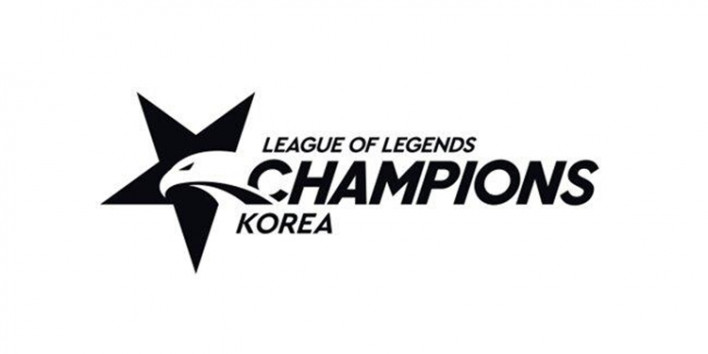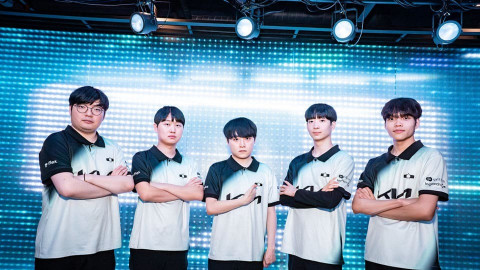
What is pro sports? Is it the owner making an incredible amount of money from it? Although there is a ton of money in it, it’s not all about the money. Sports stem from entertainment, as a community banded together in the efforts to spread happiness and joy.
In terms of the upcoming franchising in the LCK, Riot’s focus is on the true value of sports, and it’ll be the focal point in assessing the teams that applied. Through LCK franchising, they hope to be more competitive and provide a higher form of entertainment to the fans. Inven spoke to Lee Jung-hoon of Riot Korea, and he emphasized that they’re in preparation of making franchising in the LCK represent the fundamental form of esports.
The application for the LCK franchising is now closed.
The parties that applied are as we predicted. Because we’ve received a Letter of Intent (LOI), there weren’t any huge surprises. A lot of questions were asked within the time frame of sending in the Letter of Intent and the actual application, and most of them were about forming a consortium. The reason why there are more Letter of Intents than the actual application forms is because various orgs partnered up with one another to apply.
Many are hoping for 12 teams in the LCK.
We definitely understand how the fans feel. If that number becomes bigger than 12, it’ll mean more entertainment. We’ve been working on franchising since 2018, and we’ve thought a lot about the number of teams. If that number’s small, it’ll mean more money to be divided among the teams, but franchising is a key element in the league’s evolution, so it’s unlikely that less teams means the growth of the league.
Let’s say we pick 10 teams for LCK franchising. There will be teams that are good at business and are financially strong, but there will also be teams that won’t fit the aforementioned criterias. If there are more teams, the financial gap between the teams will widen even further. We’ll be assessing how wide that gap is with more than 10 teams, and if the gap isn’t substantial, then we’ll definitely contemplate expansion. I’ve skimmed through the letters of application. Examining the documents alone will take about a month, and we’ll be examining the authenticity of the applications, and on the various investments as well.
We’re aware that many organizations sent in their application as a consortium. Can this be looked as positive?
For now, we do, because it means that the organizations can fill in the areas that are lacking. When the inquiries about forming a consortium came in, we set up an ironclad rule for ourselves, which was that teams within the same league, LCK and CK, are not allowed to form a consortium with one another. This goes against our ruleset of how one organization is not allowed to own two teams. It cannot impact the integrity of the competition.
However, we told them that LCK and CK teams can form a consortium, and that’s because apart from the Promotion Tournament, those teams will not face off against one another. Other than that, teams and corporations partnered up to apply for franchising.

Consortiums can seem to be those that are on the hunt for future profits.
It can definitely seem that way. However, if we don’t accept consortiums, it’ll be very hard to franchise the league. Teams will struggle to find capital and create plans to expand their business on such short notice. However, if the investment is focused on creating profit, rather than vision in esports, the selection process will go quite differently. Although it’ll be hard to tell 100%, we’ll be looking at the characteristics of the various investments made, as well as conducting an in-depth interview with the representatives of each organization.
Is it safe to say that the stability and the durability of the investments are the two key points that Riot’s looking at in the selection process?
That’s right. We believe that they’re mandatory conditions that we look at. We will not be giving more points to teams based on the amount of capital they have. Financial stability is a fundamental condition. It’s a given that they not only have to be able to fund the application fee, but also be able to maintain operations. We’ll be assessing the authenticity of the capital, which is just a fundamental aspect.
The core aspect of the screening process is in its integrity. What are the plans to keep the process impartial?
It’s something we’re racking our brains on right now. Although we can’t reveal anything right now, we’ll share how we kept the selection process impartial. We’re worried about how much we can share with the fans, and how much we can form that consensus with them. Yet, if we do reveal such factors during the selection process, it can potentially taint the integrity of it. We’ll make sure to utilize the right people for it, and when the results are out, we’ll be ready to explain how we did it and be evaluated for it.

How will profit and sales be generated?
We gave the teams that sent us a LOI a guideline, which is something that we’re confident to call our blueprint. In it, we explained how we project profit and sales will be generated over the course of several years. Although the numbers that we predicted are conservative to say the least, based on the profits generated by different factors, the numbers projected came out great.
Riot Games took over the production of the LCK two years ago, which means that Riot first took over the business aspect of it first started last year. Since then, there were no sales generated from the league, and we didn’t expect any when we started this business. However, when we attracted various broadcasting rights and sponsorships ourselves, the amount of profit we gained was much larger than we initially predicted. Furthermore, there are many more business opportunities than we thought, so we’re moving on those as well. If we aggressively act on attracting broadcasting rights and sponsorships, there will be more profit, so we told the teams to not worry in that regard.
So, is it safe to say that the majority of sales come from broadcasting rights and sponsorships?
Right. Especially when compared to other regions, it’s one of the strengths of the LCK. LCK has a huge global audience, and the viewership is very high. Simply put, we can export broadcasting rights, and there are a lot more platforms that are interested in it than you’d imagine. Even now, there are more than 10.
When it comes to the unit costs of sponsorships, we’ve been a bit humble up until now. The level of satisfaction has been very high when attracting various sponsorships, and it comes from cost efficiency. Evidentially, we predict that we’ll not only maintain our current sponsors, but attract new ones in the future.
There’s even a sponsored banner within Summoner’s Rift. Does this all go towards the league’s profits?
All technical issues have been resolved, and it definitely goes towards esports sales. However, we’re trying to figure out the business model of it. Do we divide the profit among the teams? Or do we let the teams decide which banners to put it for themselves? Such aspects are not within the projected sales of franchising, and at the end of the day, they’re all positive signs.

They say that it’ll be the fastest league to generate net profit.
Net profit is a relative concept. It’s easy to define net profit from just the league, the teams, or the two combined. If you’re thinking about just the net profit from the league, the goal isn’t to make the numbers a lot higher. Directly put, the reason why Riot Games is franchising the league isn’t to make money.
Riot Games has a clear vision when it comes to esports. They hope to create something that’s on equal footing as traditional sports, so it’s not just a marketing scheme. Their vision is to make esports self-sustain as a sport, so it’s hard to say that generating big numbers in sales is their objective.
Teams or owners looking at esports as an opportunity for fame and money is not how this fundamentally works. The hope is for them to find their footing as a sports organization through financial results. When profit’s generated, organizations have to reinvest in the organization to fortify the structure. This means that the true value of a sports organization lies within their brand, and the amount of profit isn’t the first thing that’s looked at in evaluating them. In the guidelines we sent the teams, we explained that evaluation will be focused on their brand.
To answer the question on whether or not the LCK will become the league to generate net profit the fastest, things do look quite positive. When you compare KR to other regions that’s 100% run by Riot, there isn’t much difference in the amount of sales, but among those regions, LCK has yet to be franchised, so when it does, sales will naturally go up. Although it’s worrying that it may sound like we’re devaluing other regions, we’re definitely confident. It’s important for the LCK to export broadcasting rights, and there are high possibilities of global sponsorships. LPL has to be exempt when comparing, because not only is the size of the market bigger and the franchising structure much different, Tencent plays a huge part in the league, so it’s hard to compare with them.
The word is that among the franchising models that’s implemented, it’ll look close to the LEC model.
It’s very wrong to express which region is doing better. LCS was the first region to implement franchising, so there was a lot of trial and error. When it comes to franchising, there are so many things to consider. From distribution of the league’s profit, setting the price for application fees, rewards, player supply and demand, to team selection, LEC was the first league to improve all those evaluating factors, and LCS followed shortly after in improving the areas. They’re on equal footing now, and the reason why we’re following the LEC model is to see them as a benchmark.

Depending on which team is playing, the viewership difference is substantial, so how will profit from the league distributed among the teams?
We’ve done a lot of research on the matter, and we’ve looked at all the different models of all the sports leagues around the world. We were even consulted to fill in the knowledge that we lack. From only distributing the league’s sales, to combining the teams’ and the league’s sales, there are so many different ways to go about it. The distribution model will be based on that.
However, in the end, these models, alongside many different functions used in pro sports all focus on how to minimize the gap between the teams. There are some leagues that have a very wide gap, and some do not, so it’ll all depend on how wide that gap is.
The teams that will be a part of the LCK have yet to be selected, so it’s hard to explain how wide that gap will be, but historically speaking, that gap will exist. Therefore, all the money generated from the league itself will be equally distributed. We concluded that grading the distribution based on a team’s standings and viewership will only broaden the gap, but the sales and profit that the teams generate themselves will solely depend on their abilities.
There may be some inquiries about only wanting to broadcast the matches of certain teams.
Even right now, we respect how the teams conduct their own businesses. However, broadcasting rights is a different story. There can be no segregation among the teams, and we will never allow such a thing to happen. There are about 90 official matches in a split in the LCK, and we believe each match is equally important. Apart from the LCK, teams can do whatever they want with streaming, which is what’s already happening.
After LCK is franchised, shouldn’t there be a secretariat to separately manage all this?
There are plans for it. What we can tell you at the moment is that it won’t be like now, where Riot will have 100% of the decision making power. There will be a consultative group, consisting of all the LCK teams and Riot Games. Although it hasn’t been decided to have a head honcho for this group, operations, business, and marketing will all be session based.
Since teams won’t be relegated anymore after franchising, the competition in the lower half of the bracket will falter. Right now, there isn’t even a system with drafting players or price cap on player salaries. What are some measures that are being planned for this?
There will definitely be measures implemented. This is the problem that we’re worrying about the most. If teams get complacent because they made franchising, thus becoming lazy in conducting their businesses, and linger at the bottom half of the standings for a long time, penalties will definitely follow. We’re still figuring out how such teams will be penalized.
Player salaries, not only in the LCK, but in other regions as well, are currently very high at the moment. If teams can make profit, then there won’t be any problems, but operational problems occur when there’s no profit being made, but player salaries continue to rise. It’s an area that needs to be properly looked at. Teams gave us great suggestions, and we’ll make it happen by working with them. Given the structure of LoL esports, if one region suddenly implements a salary cap, it’ll ultimately be disadvantageous for the region, so it’s hard to implement salary caps right away. We hope to create a system that works for us.
There’s talk about implementing a draft system. There’s a lack of academy sports in esports, so it’s hard to implement the traditional draft system. Therefore, we’re looking at various options that can work in place of the draft system, such as creating a separate competition for the up and coming talent. When we find the right system, we’ll implement it. This applies to not just LCK franchising, but LoL esports as a whole.

Although there isn’t much interest in CK teams, there are teams like Jin Air Greenwings, which is a team that’s been in the LCK for a long time. Currently, while this Summer split may mean a lot for the players themselves, the same can’t be said for the organizations.
Internally speaking, we’ve decided on how we’ll be compensating them. The reason why compensation is given to LCK teams and CK teams that fail to make franchising is to reward them for participating in the 2020 LCK Summer split. In other regions, the condition for receiving compensation was that they gave up their rights in player possession. It’s more of a deal than a compensation, really.
There’s a huge problem with agent’s acting on young talent with malicious intent and China swooping in on them. How will those problems be solved after franchising?
In terms of young, underaged talent being exported to other regions, we’ll be more strictly managing it. Even now, whether the player is underage, or if the player is going overseas, you need to get consent from both the player and their legal representatives. We’ll be respecting what the players want to do. However, there’s no way to control the LPL teams picking up on players that aren’t associated with an LCK team. The only thing we can do is to make the LCK a better environment for young talent, and we’ll all work hard in making it happen.
In terms of the player agent problem, both Riot Games and LCK are looking at them very closely. It’s publicly known that agents are active both directly and indirectly. We’re looking at how other sports manage agents, and it can be divided into three methods; ignore them, ban them, or institutionalize them. Although we’re contemplating on how these agents become qualified, and how they’ll be punished upon wrongdoing, it’s the method that interests us the most.
In terms of stability and the longevity of the league, the majority of the fans welcome franchising. Can you say a few words to them?
Before finding success in the business aspect of franchising, we always had, and will continue to have the fans in mind. Attracting and gaining more sponsorships is important, but the LCK performing well is the most important factor. We’re always thinking about how we can make the LCK more competitive and provide more entertainment for the fans. There is no higher objective than this, and it’s what I believe what pro sports means. It’ll be the focal point of the screening process, so please feel free to criticize what we’re doing wrong.
-

-

-

Striving for perfection to achieve excellence in esports
Sort by:
Comments :0






